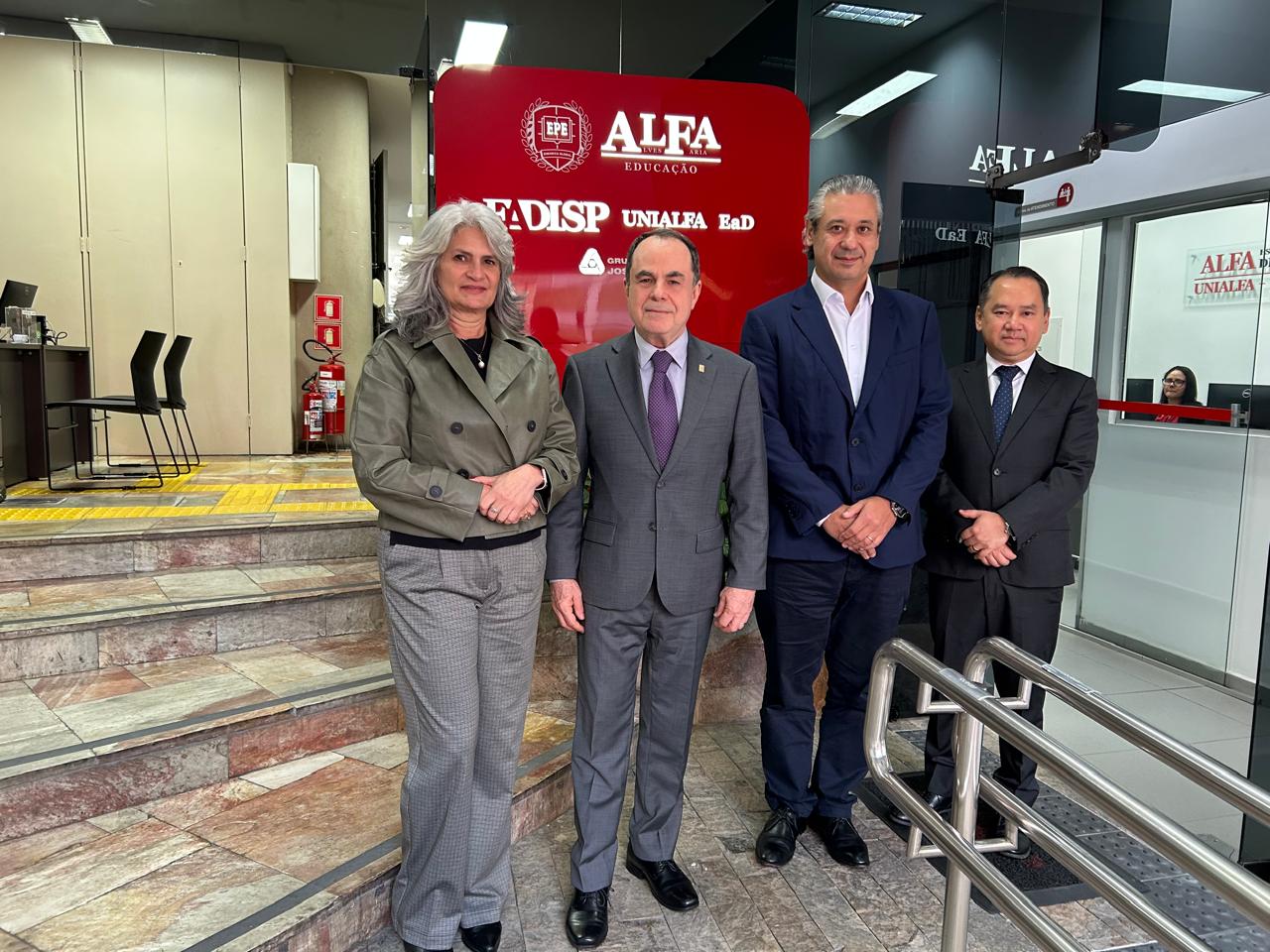
On Friday, June 20th, the directors of the Superior School of the Judges of the State of Tocantins (Esmat) concluded a strategic institutional agenda in the city of São Paulo, focused on strengthening educational partnerships, promoting innovation in the Justice System and inter-institutional dialogue on public policies.
Led by Justice Marco Villas Boas, general director of the School and president of the Permanent College of Directors of State Schools of the Magistracy (Copedem), accompanied by Ana Beatriz de Oliveira Pretto, executive director, and Judge Wellington Magalhães, second deputy director, the interdisciplinary team took part in the Colloquium on “Active Generative Artificial Intelligence and the Judiciary”, held at the School of the Judiciary of the state of São Paulo (EPM) on June 16th and 17th.
The programming is part of the activities of the Post-Doctoral Program in Artificial Intelligence applied to the Judiciary, developed in partnership with the University of the state of São Paulo (USP). The programming included presentations of ongoing research projects, debates on the new Capes publication rules and a technical workshop with Professor Ednéia Silva Santos Rocha (USP) on bibliographic review methodologies in the library system of the university.
On the occasion, Justice Marco Villas Boas presented his post-doctoral research project on "Hórus Project: Development of Active Generative AI for Judicial Decision Support ", and magistrate Wellington Magalhães his research entitled on " Generative AI Applied to the Judiciary ".
For the general director of Esmat, the implementation of AI technological resources, with the appropriate technical and ethical responsibilities, will speed up the provision of justice in the Brazilian Judiciary.
“We are facing a transformation that is not just technological, but epistemological. Projects like Hórus show that it is possible to combine artificial intelligence, judicial ethics and transparency, promoting more efficient and accessible Justice," he said.
IESS
During the week, Esmat representatives also took part in a technical meeting with the Institute for Supplementary Health Studies (IESS). On the agenda was the proposal to hold a new edition of the Legal Congress on Supplementary Health, scheduled for the second half of 2025. The event aims to foster technical and legal debate on the challenges of health judicialization and the construction of inter-institutional solutions based on scientific evidence and successful experiences.
Stricto Sensu networked
The agenda of activities ended with the signing of a Memorandum of Understanding with Unialfa, aimed at setting up master's and doctoral programs on an associative basis, with the participation of interested Judicial Schools across the country. The initiative aims to strengthen the academic training of magistrates and civil servers, expanding access to STRICTO SENSU postgraduate courses in the field of Law and Public Administration. Also on Friday, a cooperation agreement was signed with Alfa Education, in a ceremony that brought together academic and institutional leaders. The aim is to expand access to legal education of excellence and consolidate innovative initiatives for continuing education and digital transformation within the Brazilian Judiciary.




